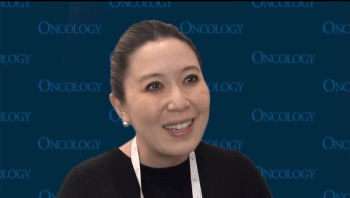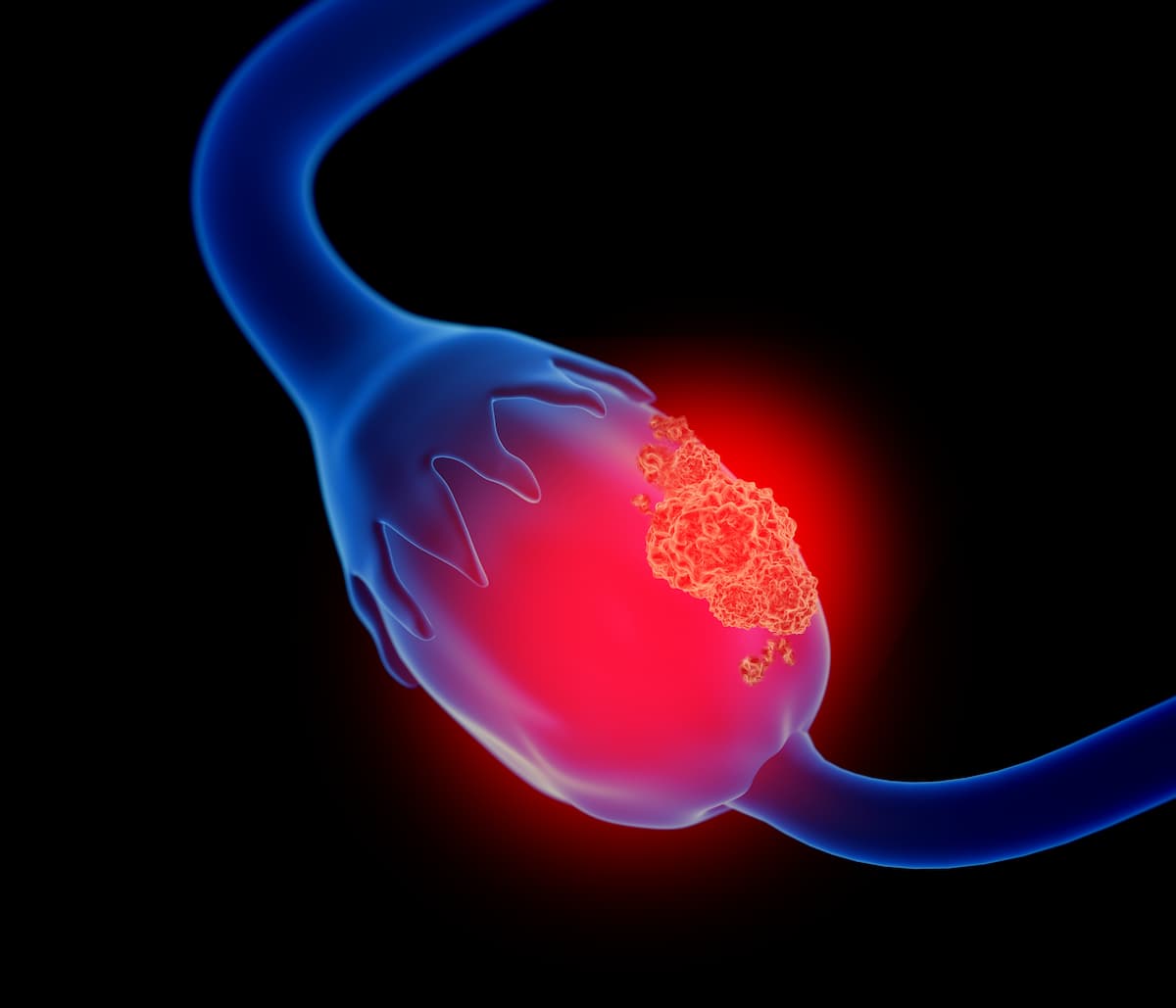
Ovarian Cancer
Latest News
Latest Videos

Podcasts
CME Content
More News

Investigators of the OVATION-2 trial assessed IMNN-001, a novel IL-2 gene therapy, in patients with newly diagnosed epithelial ovarian cancer.

Future findings from a translational analysis of the OVATION-2 trial may corroborate prior clinical data with IMNN-001 in advanced ovarian cancer.

Data from the ROSELLA trial may support relacorilant plus nab-paclitaxel as a new standard in this ovarian cancer population.

The median PFS with dostarlimab plus niraparib was 20.6 months vs 19.2 months with niraparib alone in patients with treatment-naive advanced ovarian cancer.

Approximately 10% of patients discontinued treatment with avutometinib/defactinib due to toxicity in the phase 2 RAMP 201 trial.

Response rates appeared to be higher with avutometinib plus defactinib vs avutometinib alone in the phase 2 RAMP 201 study.

Data from the KEYNOTE-B96 trial also show a significant overall survival improvement with pembrolizumab-based treatment in PD-L1–positive disease.

Patients who respond to avutometinib/defactinib may be maintained on treatment for long periods of time, says Rachel N. Grisham, MD.

Findings from the phase 2 RAMP 201 trial support the FDA approval of avutometinib plus defactinib in low-grade serous ovarian cancer.

The regulatory decision may offer more scheduling flexibility for patients who receive thiotepa for breast or ovarian cancer.

The phase 3 ROSELLA trial results assessing relacorilant/nab-paclitaxel in patients with platinum-resistant ovarian cancer will support an upcoming NDA.

Findings from the OVARIO study show that patients with HRR–deficient and BRCA-mutated disease benefitted the most from niraparib/bevacizumab maintenance.

The phase 3 ARTISTRY-7 trial has been halted and nemvaleukin is no longer being developed for the treatment of patients with platinum-resistant ovarian cancer.

Antibody-drug conjugates like Rina-S may be able to salvage some of the responses that are often lost in the later lines of treatment, according to Elizabeth Lee, MD.

“There is, potentially, a role for Rina-S or other novel ADCs targeting different epitopes on the cancer cell surface,” Elizabeth Lee, MD, stated.

Future research may explore predictors of interval debulking surgery success and the scope of required surgery in advanced ovarian cancer.

Results from the NIRVANA-R trial found niraparib/bevacizumab maintenance yielded positive activity in pretreated ovarian cancer.

A phase 2 trial found that pembrolizumab plus lenvatinib elicited an overall response rate of 37.5% that consisted entirely of partial responses in high-grade serous PROC.

Data show deep responses with rinatabart sesutecan among patients regardless of folate receptor alpha expression level in a phase 1/2 study.

The adverse effect profile of abemaciclib plus hormonal therapy was comparable with prior reports of CDK4/6 inhibitors.

Low grade serous ovarian cancer, a rare epithelial ovarian cancer subtype, requires differentiated treatment from its high-grade counterpart.

Results from the OVARIO trial found HRQOL maintained with niraparib/bevacizumab maintenance in patients with advanced ovarian cancer.

The REFRαME-O1 trial improved response in patients with FRα–positive platinum-resistant ovarian cancer, including those with low to medium expression when given luveltamab tazevibulin.

Mirvetuximab soravtansine additionally showcased PFS, ORR, and DOR benefits over chemotherapy in FRα-positive platinum-resistant ovarian cancer.

The KEYLYNK-001 trial found improved PFS among patients with advanced ovarian cancer given pembrolizumab/olaparib.














































